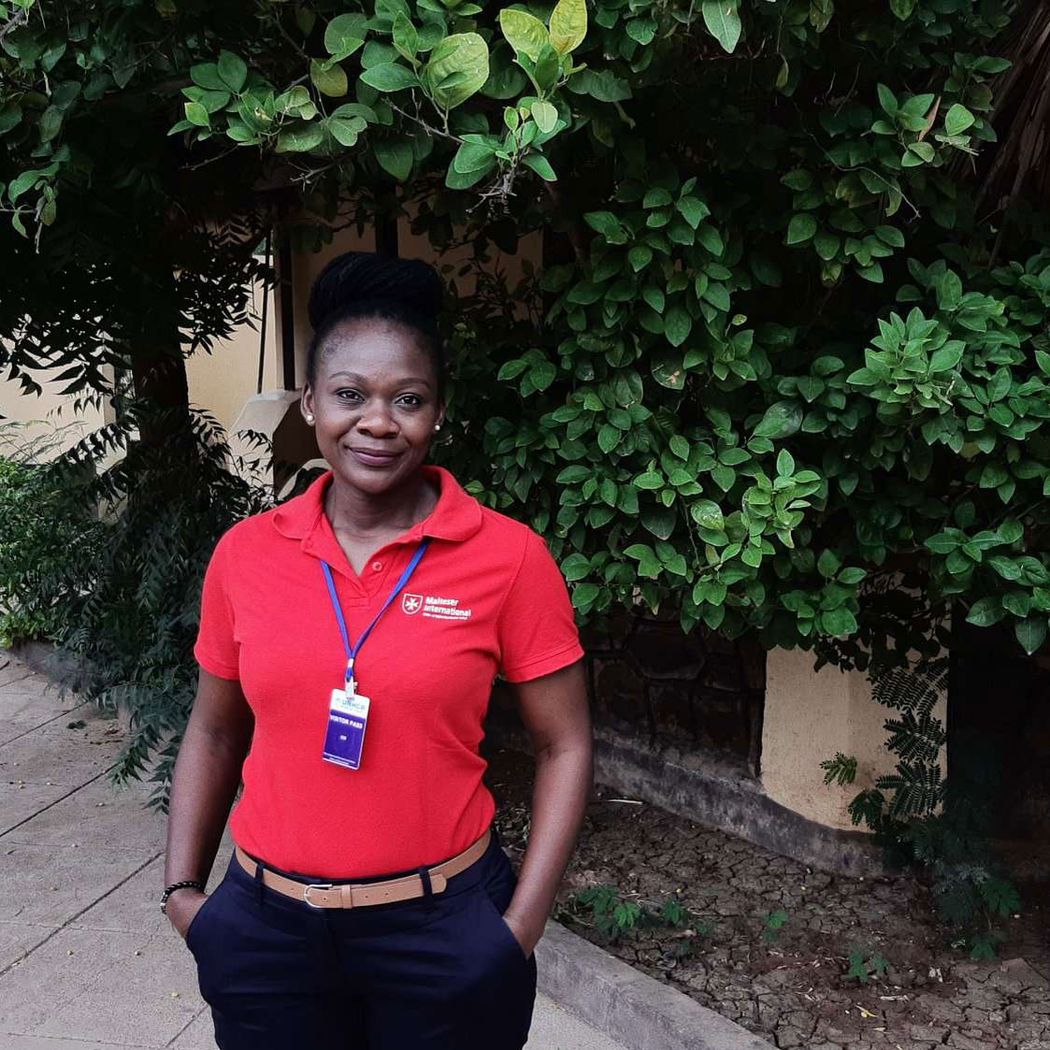#WomenHumanitarians: “Working as a humanitarian just feels natural”
Caroline Nyongesa is Malteser International’s Regional Health Advisor in Kenya. The public health specialist and social scientist has been with Malteser International for 13 years, working to improve the health situation of vulnerable populations in East Africa. She is currently leading a Malteser International project to reduce maternal and child mortality within the Burundian refugee community in Tanzania. In this interview, Ms. Nyongesa talks about the challenges women face as humanitarian aid workers and heartwarming moments in her career.
How did you get into humanitarian aid? And why did you become a humanitarian aid worker?
I have always had a heart for making other people’s lives better or at least more comfortable. This is why I began my career as a health practitioner in the informal slums of Nairobi. Ending up in Humanitarian aid was just a natural gravitation and an opportunity that was presented by Malteser International. It just felt natural.
Are there specific moments in your career in which your gender played an important role— positive or negative?
As a woman, you are constantly conscious of the implications of your gender in the work place. Sadly, for the greater part, it tends to work against you. However, I have had moments of interaction with women that have truly left a print on my heart. One time, while interviewing refugee women on issues of maternal and child health, they paused, looked at me and said they were truly impressed that someone who looked like them was leading a team that included men. They flattered me with praises. I had never felt more appreciated by people I was hoping to help.
In my work with Burundian refugee women, I realize that they connect better with me as a woman. During our initial assessment, the warmth and openness which they showed me was palpable. They would ask me questions about my background and experience, and were generally interested in building trust with me.

What stereotypes annoy you or what situations repeatedly happen to you just because you’re a woman in the sector?
It is annoying to notice that in most humanitarian contexts, women are expected to remain silent and let men talk. Often, even as team leader, I have had to share my notes with a male colleague and allow them to do the talking.
Did you ever fear for your life? How did your colleagues help in those situations?
I have been in situations in which I was aware of possible danger, for example, at road blocks or check points controlled by armed soldiers. Luckily, these situations were defused or well handled by colleagues in charge.
How do you help other women in your area of work?
I have tried to ensure that other women I work with get equal treatment and opportunity as the men. It is not always easy.
What would you say to other young women planning a career in humanitarian aid?
I would tell them it is a very demanding but rewarding venture.
Finally, what does being a humanitarian aid worker mean to you as a woman?
To the people whom we reach with our work, I am not just a woman, but also a helping hand. I am just happy to make other people’s lives more comfortable. I have realized that while my work may impact positively on their lives, it is really them who continue to touch my life.
August 2019, written by Michael Etoh








